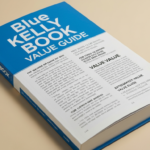Introduction: The Allure of a Mysterious Number
Sometimes a sequence of digits—nothing more than ten characters—can spark curiosity, speculation, and even mild obsession. 8393597031 is one such sequence. It appears in various corners online: as a possible phone number, a reference code, a topic of web posts, and a placeholder in discussions. But what is it really? Why do people search for it? And what lessons can we draw from our fascination with such numeric curiosities?
In this article, we’ll explore multiple angles: what 8393597031 might represent, how such numbers function broadly in technology and business, what risks or pitfalls come along with chasing meaning, and finally some reflections on how we as digital citizens should treat mysterious data. By the end, you’ll see that even a seemingly meaningless number can teach us a lot about systems, trust, and information.
What Could 8393597031 Be?
As a Phone Number or Telecommunication Identifier
One of the most intuitive guesses is that 8393597031 might be a phone number. In many countries, a ten-digit string aligns with standard mobile or landline formats. Some people encountering the number assume it’s a customer-support hotline or somebody’s contact number. In blog posts and forums, authors often speculate that it belongs to call centers or unknown services trying to be reachable.
However, ambiguity reigns: there is no verified, authoritative registry showing that 8393597031 is assigned to a known entity in a given telecom network (at the time of writing). Because phone numbering plans vary by country, even if it is a number, it could belong to any region or be unallocated. Thus, the “phone number” hypothesis remains possible, but unconfirmed.
As a System or Database Identifier
Another plausible interpretation is that 8393597031 is not meant for public dialing at all, but rather as an internal database key, an account number, a ticket number, or a tracking identifier. In many software systems, long numeric strings are used to uniquely identify records—users, transactions, orders, tickets, assets, etc. Several sources discussing 8393597031 lean toward this view, suggesting that the string acts as a unique code in business systems.
In that context, the number isn’t designed to be human-friendly or memorable; it’s simply a key in a machine’s database. Such identifiers often lack pattern or rhyme (beyond being numeric) because their primary purpose is uniqueness and collision avoidance.
As a Symbolic or Placeholder Number
A third possibility is that 8393597031 is used more symbolically—serving as a generic example, a placeholder, or a provocative “mystery number” in online writing. You’ll find blog posts whose titles are “Everything You Need to Know About 8393597031” or “Unlocking the Mystery of 8393597031,” where the number is more a hook than a verifiable entity.
Writers might pick it because it looks “random enough” to be intriguing. It’s not too short to seem trivial, and not too long to become unwieldy. In that use case, the number’s mystique becomes self-fulfilling: readers wonder “What is this?” and click through.
Why Do People Search for 8393597031?
Curiosity and Mystery
One of the simplest motivations is human curiosity. When you see a number you don’t recognize—especially one written in bold or used as a headline—you want to know what it means. It’s like seeing an unknown license plate or a cryptic email reference: we probe, Google it, ask others. Because 8393597031 shows up occasionally in blog titles and social media, people get drawn to it to try to “solve the puzzle.”
Verification and Safety Concerns
Another driver is concern about legitimacy. Suppose someone encounters 8393597031 as a “customer support line” in a text, email, or online ad. They might search to see whether it’s a scam or fake number. In an age of phishing, fraud, and spoofed contacts, verifying unknown numbers is prudent. Individuals often want confirmation — “Is this real or a trick?” — and they turn to search engines. Blogs that discuss 8393597031 often emphasize exactly this question of whether the number is “safe.”
SEO, Content Marketing, and Traffic Hooks
Some creators or content marketers may use the number simply as a traffic hook. By producing an article titled “Everything You Need to Know About 8393597031,” they aim to attract clicks from curious searchers. Because the number has minimal competition (few authoritative matches), an article can more easily rank high in search results. In essence, the number becomes a content lever—less for its intrinsic meaning, more for its capacity to draw attention.
Risks, Misconceptions, and Cautions
Mistaking It for Something Legitimate
One danger is misattributing authority or correctness to 8393597031. People might see it in a message or hearing and assume it’s a valid hotline. Without verification, they could give out personal information, believe false instructions, or waste time calling something that doesn’t exist. The ease of misdirection is high when dealing with unknown numbers.
Thus, always check multiple sources, contact official channels (via known numbers or websites), and treat unknown numbers with suspicion.
Overinterpretation and Conspiracy Thinking
Because the number is mysterious, some may drift into overinterpretation—believing there’s a hidden design, code, or secret behind it. They might assign numerological or symbolic meaning, propose elaborate theories, or treat every occurrence as meaningful. But often, a mysterious number is simply that—random or generically assigned.
It’s a cautionary tale about pattern-seeking: humans are great at seeing connections (sometimes where none exist). The lesson is to balance curiosity with skepticism.
Propagation of Erroneous Claims
Once a blog or forum asserts something unverified about 8393597031 (e.g. “It’s the secret hotline for X agency”), that claim can be copied and repeated. Misinformation spreads, especially when others trust the “expert tone” of the writing. This effect amplifies error. Over time, folks may accept the false as fact simply because it recurs often.
Thus, any claim about the number should be backed by credible sources or first-hand evidence.
What This Number Teaches Us About Data, Identity & Trust
The Importance of Unique Identifiers in Systems
Numbers like 8393597031 highlight a fundamental truth: in modern digital systems, unique numeric or alphanumeric identifiers are everywhere. From user IDs, transaction codes, ticket IDs, to database primary keys, these strings underpin how systems tie together data. They aren’t meant to be memorable or meaningful—they’re designed to be unambiguous and scalable.
In that sense, 8393597031 is not special in concept, though it becomes special in perception.
Transparency vs. Opacity
Another lesson is about the tension between transparency and opacity. Many systems treat their internal identifiers as opaque to outsiders. You don’t need to know an order’s internal ID to use a service—but when you do see it (say in a support ticket or email), you’re left wondering what it “means.” The opacity helps with security, abstraction, and modular design, but also frustrates users who want clarity.
Thus, organizations face design choices: expose meaningful names or wrap identifiers behind human-friendly labels.
The Value of Verification and Source Awareness
Finally, the saga of 8393597031 reminds us of a core information literacy lesson: always check sources. Just because something is written in polished prose or appears in multiple places doesn’t guarantee truth. Especially with obscure data, one must assess credibility, cross reference, and trace claims back to primary or official sources.
In the digital age, mysteries abound—and many are self-manufactured. Our job as savvy consumers is to ask: Where does this come from? Who says so? What evidence is there?
Hypothetical Scenarios: If 8393597031 Were Real
Let’s imagine a few speculative uses for 8393597031 to illustrate possibilities (not endorsing any as fact).
Scenario A: Customer Support Hotline
Suppose 8393597031 is the contact line for a tech support center in some region. A company might print that on its website or documentation. Customers dialing it could reach automated menus or agents who handle issues. In that case, the number would be public, documented, and possibly subject to regulation (e.g. telecom licensing or local telephony rules).
If this scenario were true, searchers might find business directories, user reviews of calls, or complaints. But so far, no such verifiable mapping has surfaced.
Scenario B: Internal Ticket or Account Number
Alternatively, a company uses 8393597031 as an internal reference. A user might see it in an email: “Your ticket number is 8393597031.” It helps support staff, systems, and databases track the issue. The customer knows it for reference, but doesn’t need to know anything deeper. In that role, the number is incidental and functional, not meaningful beyond system logistics.
Scenario C: Marketing or SEO Hook
In a third scenario, a web publisher invents 8393597031 just to write mystery-style articles (“What is 8393597031?”). They build content around the speculation, trying to attract traffic because few competing pages address it. In that case, the number’s public life is purely symbolic.
This is quite plausible given observed blog patterns.
Tips When You Encounter a Mysterious Number
If you ever come across a number like 8393597031 (or any similarly odd string), here are some practical steps to approach it wisely:
- Search multiple sources — don’t rely on one website. Look for official references (company sites, directories, regulatory bodies).
- Check domain and context — where did you see the number? In an email? A phone bill? A website? That gives clues.
- See if there’s review or complaint history — other people may have searched it already in forums, complaint boards, or social media.
- Avoid giving personal info until verified — treat unknown numbers with caution.
- Contact known official channels — if the number is supposed to belong to a company, reach them via their known contact methods and ask directly.
- Keep track of claims vs. evidence — note down what is asserted vs. what is documented.
Conclusion: The Mystery Endures — But With Emphasis on Lessons
At the end of the day, 8393597031 remains, for now, a curious enigma. No indisputable authority has assigned it a public meaning that we can confidently state. Yet, the number has value—not because of what it is, but what it teaches us. It reminds us of:
- the ubiquity of numeric identifiers in modern systems,
- the interplay between transparency and opacity in how systems expose (or hide) data,
- the need for scrutiny, verification, and skepticism when encountering sparse or mysterious information.
Whether 8393597031 is a hotline, a ticket number, a clever SEO hook, or simply a random placeholder, its mystique continues to invite speculation. And if nothing else, it offers a small but useful case study in information literacy in the digital age.
If you like, I can dig further (e.g. in telecom registries) to see whether 8393597031 has traceable ownership. Would you like me to try that?





